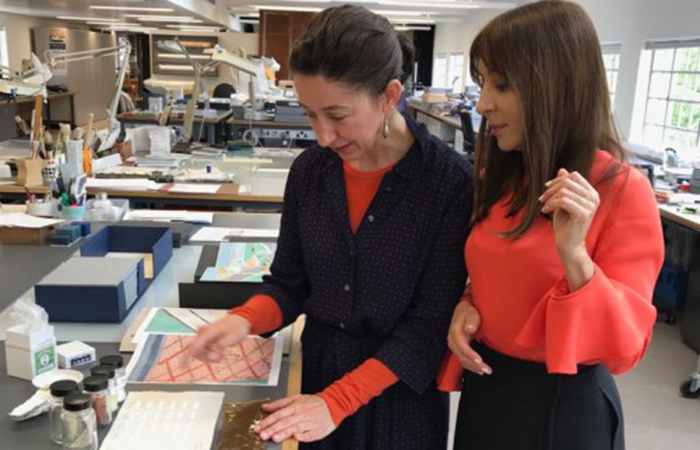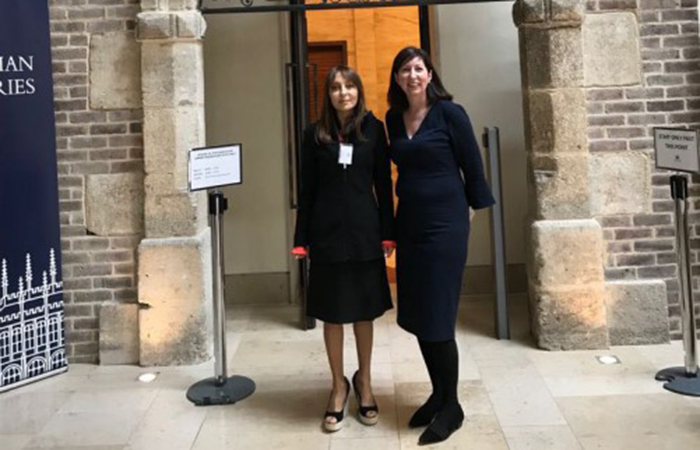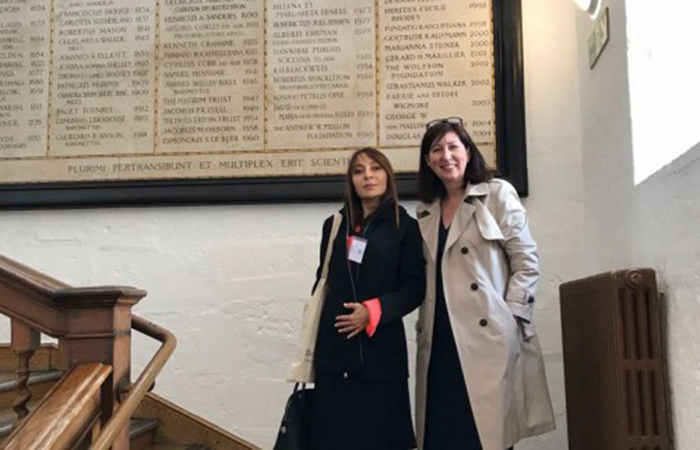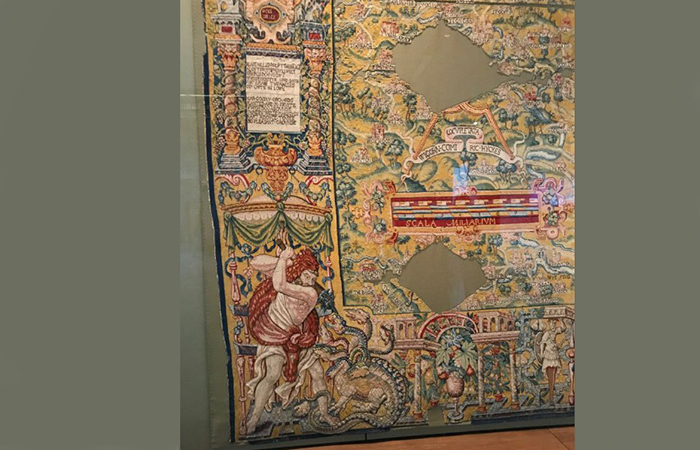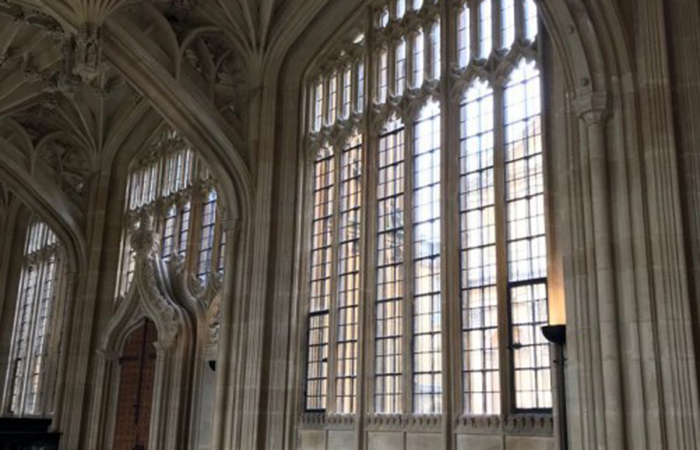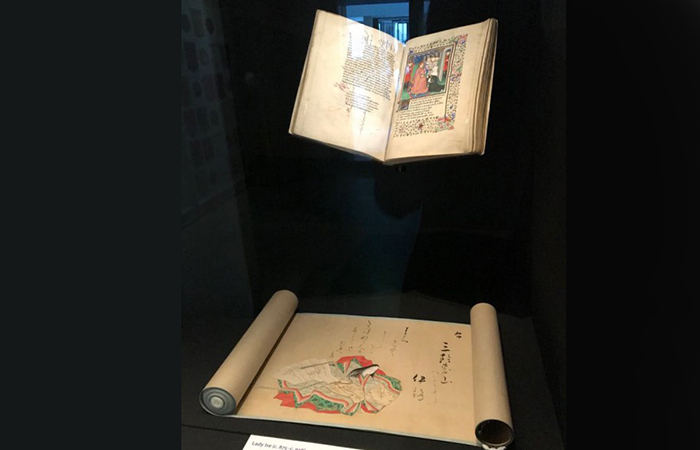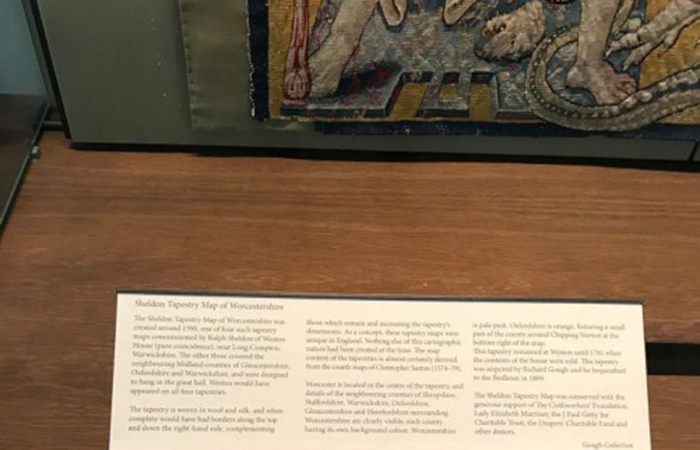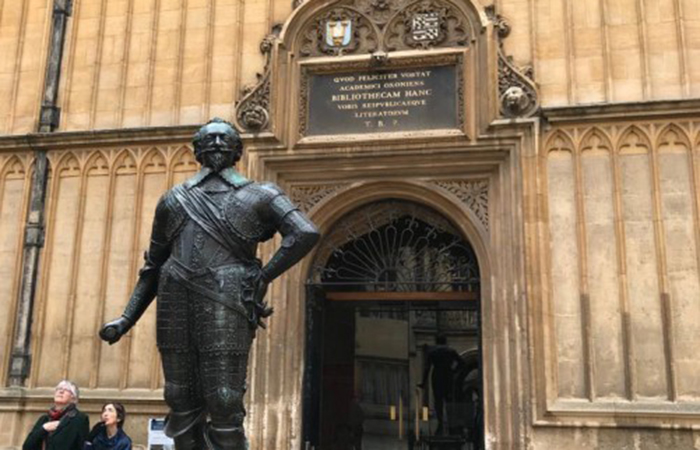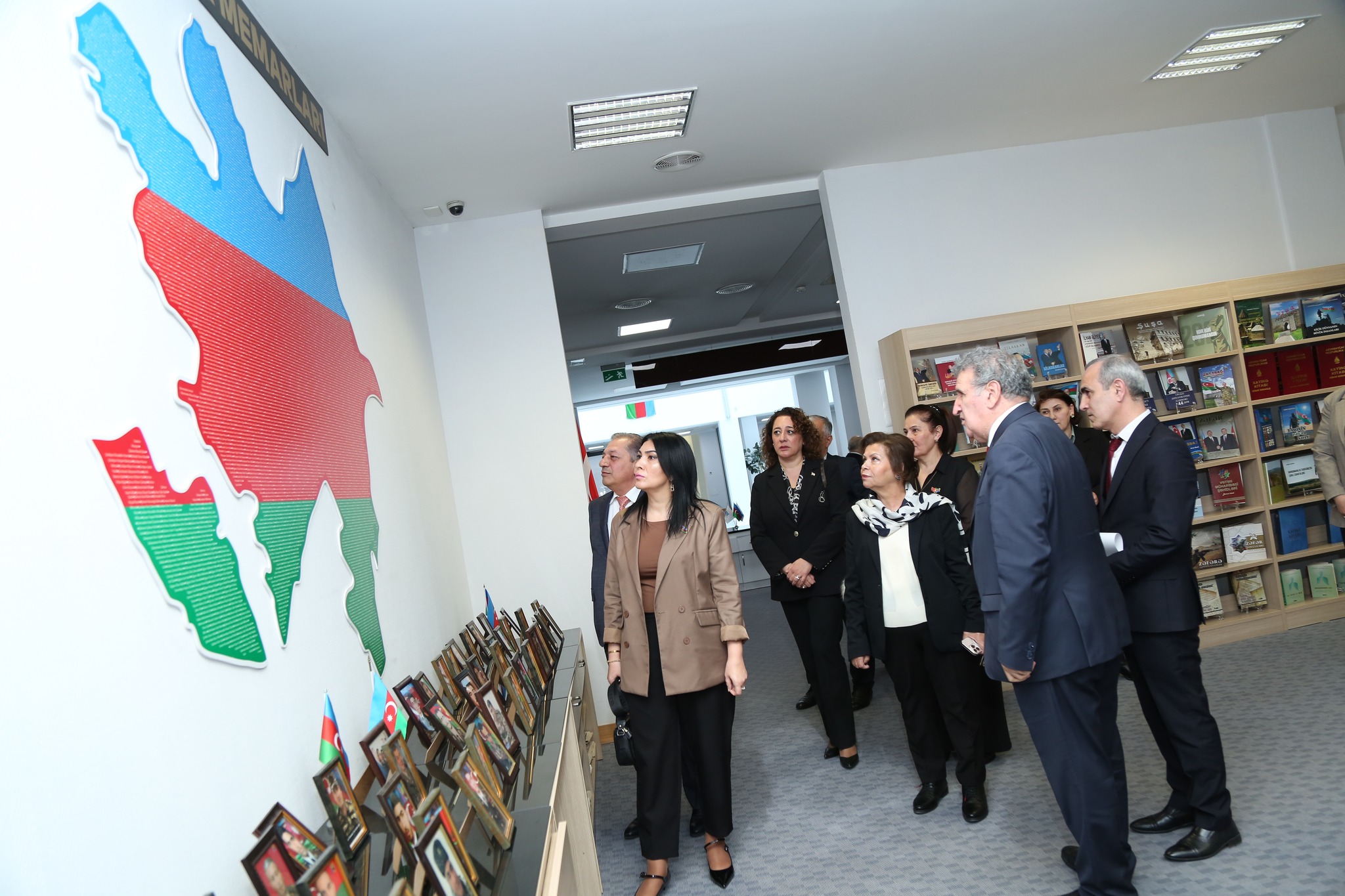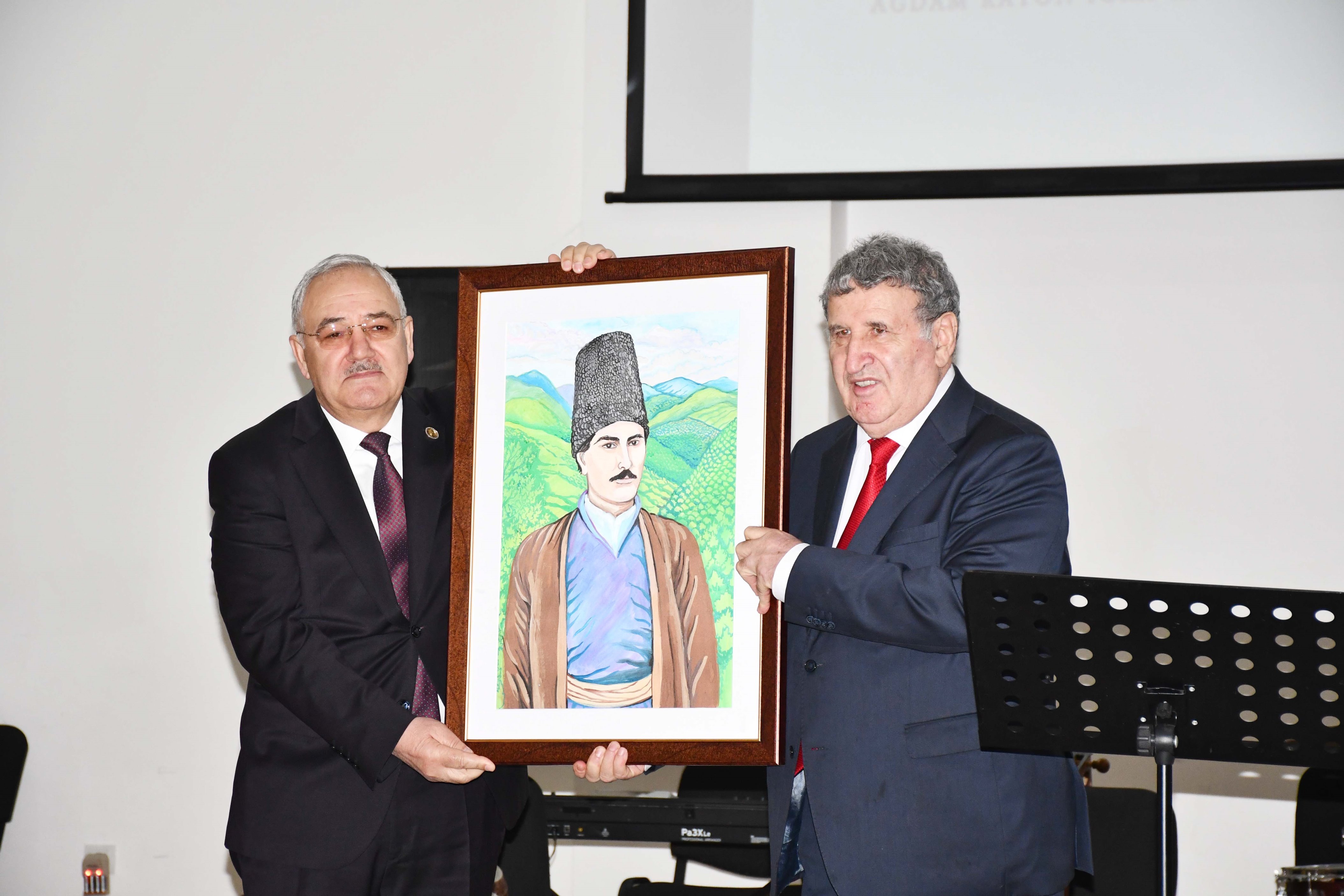- A-
- A
- A+
Professor Nargiz Pashayeva meets with Bodley's Librarian Richard Ovenden
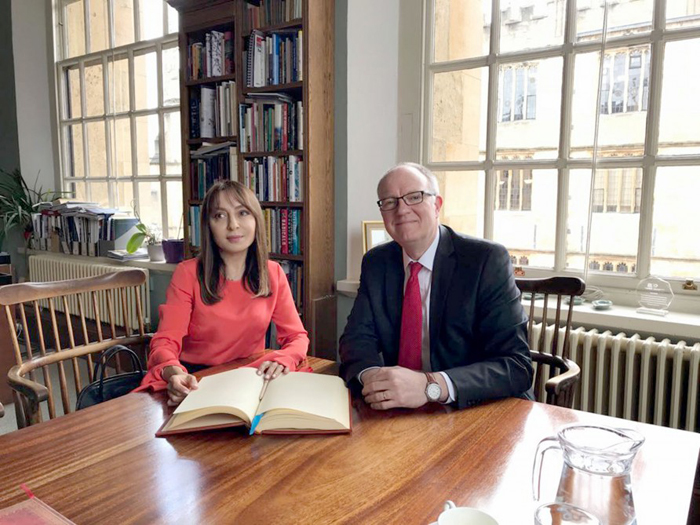
Rector of Baku branch of Lomonosov Moscow State University, full member of Azerbaijan National Academy of Sciences Nargiz Pashayeva has met with Bodley's Librarian at the Bodleian Libraries (https://www.bodleian.ox.ac.uk) Richard Ovenden, and Head of the Bodleian Libraries Development Department, University of Oxford, Elaine Gallagher.
Richard Ovenden (https://www.bodleian.ox.ac.uk/about/management/biographies/richard-ovenden) is the 25th person to hold the title, which is the senior executive position of the Bodleian Libraries. He was educated at Durham University and University College London, and has worked as a professional librarian since 1985. He has served on the staff of Durham University Library, the House of Lords Library, the National Library of Scotland (as Deputy Head of the Rare Books Section), the University of Edinburgh (as Director of Collections), and since 2003 at the Bodleian Libraries (first as Keeper of Special Collections, from 2011-2014 as Deputy Librarian, the Bodleian Libraries, then from 2014 as Bodley’s Librarian).
Richard Ovenden sits on the Board of Research Libraries UK and of the Consortium of European Research Libraries, where he is Treasurer, and is currently President of the Digital Preservation Coalition. He has published widely on the history of collecting, the history of photography and on professional concerns of the library, archive, and information world, and is a Fellow of the Society of Antiquaries and was elected to the American Philosophical Society in 2015. Recently Richard Ovenden headed Oxford’s involvement with the Google mass digitization project. He holds a Professorial Fellowship at Balliol College, Oxford.
Libraries in the Bodleian Libraries group include major research libraries, libraries attached to faculties, departments and other institutions of the University and, of course, the principal University library – the Bodleian Library – which has been a library of legal deposit for 400 years.
The Bodleian Library is one of the oldest libraries in Europe, and in Britain is second in size only to the British Library with over 12 million printed items. First opened to scholars in 1602, it incorporates an earlier library built by the University in the 15th century to house books donated by Humfrey, Duke of Gloucester. Since 1602 it has expanded, slowly at first but with increasing momentum over the last 150 years, to keep pace with the ever-growing accumulation of books, papers and other materials, but the core of the old buildings has remained intact.
Known to many Oxford scholars simply as ‘the Bod’, these buildings are still used by students and scholars from all over the world, and they attract an ever-increasing number of visitors.
The University’s first purpose built library was begun in approximately 1320 in the University Church of St Mary the Virgin, in a room which still exists as a vestry and a meeting room for the church. The building stood at the heart of Oxford’s ‘academic quarter’, close to the schools in which lectures were given. By 1488, the room was superseded by the library known as Duke Humfrey’s, which constitutes the oldest part of the Bodleian.
Humfrey, Duke of Gloucester and younger brother of King Henry V, gave the University his priceless collection of more than 281 manuscripts, including several important classical texts. The University decided to build a new library for them over the new Divinity School; it was begun in 1478 and finally opened in 1488.
The library lasted only 60 years; in 1550, the Dean of Christ Church, hoping to purge the English church of all traces of Catholicism including ‘superstitious books and images’, removed all the library’s books – some to be burnt. The University was not a wealthy institution and did not have the resources to build up new a collection. In 1556, the room was taken over by the Faculty of Medicine.
The library was rescued by Sir Thomas Bodley (1545–1613), a Fellow of Merton College and a diplomat in Queen Elizabeth I’s court. He married a rich widow (whose husband had made his fortune trading in pilchards) and, in his retirement, decided to ‘set up my staff at the library door in Oxon; being thoroughly persuaded, that in my solitude, and surcease from the Commonwealth affairs, I could not busy myself to better purpose, than by reducing that place (which then in every part lay ruined and waste) to the public use of students’.
In 1598, the old library was refurnished to house a new collection of some 2,500 books, some of them given by Bodley himself. A librarian, Thomas James, was appointed, and the library finally opened on 8 November 1602.
Bodley’s work didn’t stop there. In 1610 he entered into an agreement with the Stationers’ Company of London under which a copy of every book published in England and registered at Stationers’ Hall would be deposited in the new library. This agreement pointed to the future of the library as a legal deposit library, and also as an ever-expanding collection which needed space. In 1610–12 Bodley planned and financed the first extension to the medieval building, known as Arts End.
The activity of Nizami Ganjavi Program for the study of languages and cultures of Azerbaijan and the Caucasus at the University of Oxford was discussed during the meeting between academician Nargiz Pashayeva and Bodley's Librarian Richard Ovenden.
The meeting aimed to discuss the proposal on renaming the library of the Faculty of Oriental Studies of the University of Oxford after Azerbaijan’s great poet Nizami Ganjavi.
Other participants in the event Associate Director of Development at the University of Oxford Antony Green and head of the Nizami Ganjavi Scientific Centre at the University of Oxford on behalf of UK Edmund Herzig hailed the activities of the Center.
Following the meeting academician Nargiz Pashayeva together with the scholars of the University of Oxford visited one of the first parts of Bodleian Libraries, the 15th-century Divinity School and signed the Libraries’ honorary guest book .
The idea for the Nizami Ganjavi Programme for the study of ancient languages and cultures of Azerbaijan and the Caucasus was born in 2013 when Professor Robert Hoyland came to Azerbaijan to visit archaeological sites and was invited to meet Professor Nargiz Pashayeva, rector of the Baku branch of Moscow State University. Their shared interest in education and research resulted in a joint decision to work towards the establishment of a Centre in Oxford that could provide resources for students and scholars from all over the world to come together to investigate and discuss the pre-modern history and culture of Azerbaijan and the Caucasus. The first step in realizing this aim has been the creation of the Oxford Nizami Ganjavi Programme, which will oversee the excavation of Barda in Azerbaijan, the translation of major works of Azerbaijani and Russian scholarship into English and sponsor a number of graduate students.
©All rights are reserved. Citing to www.science.gov.az is necessary upon using news.
Similar News
Links

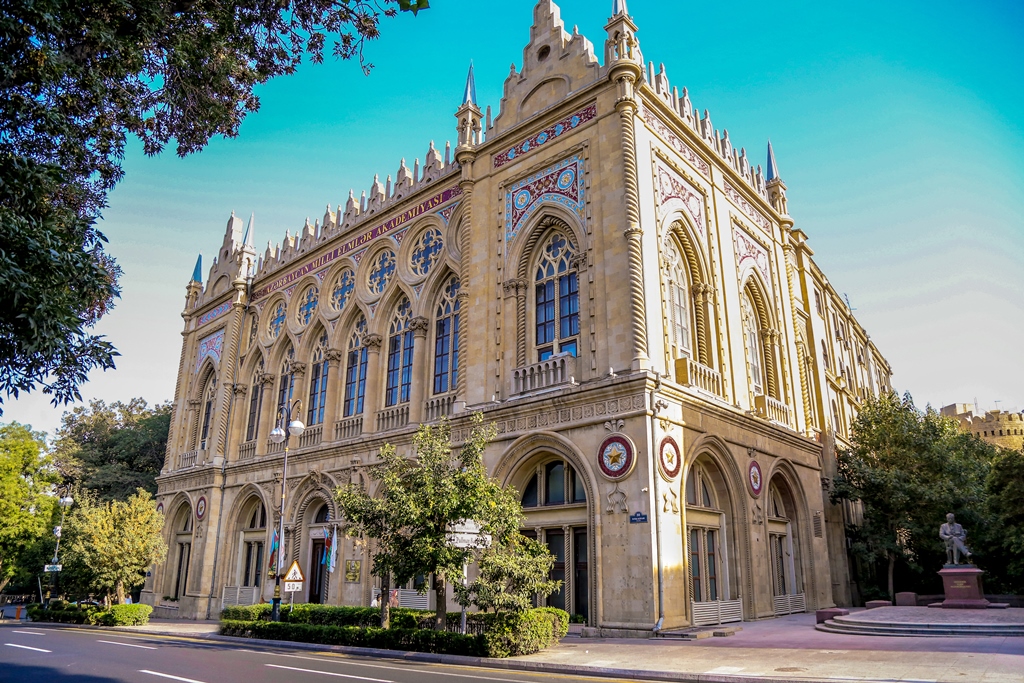

 Elm TV
Elm TV
 Photo
Photo
 Video
Video
